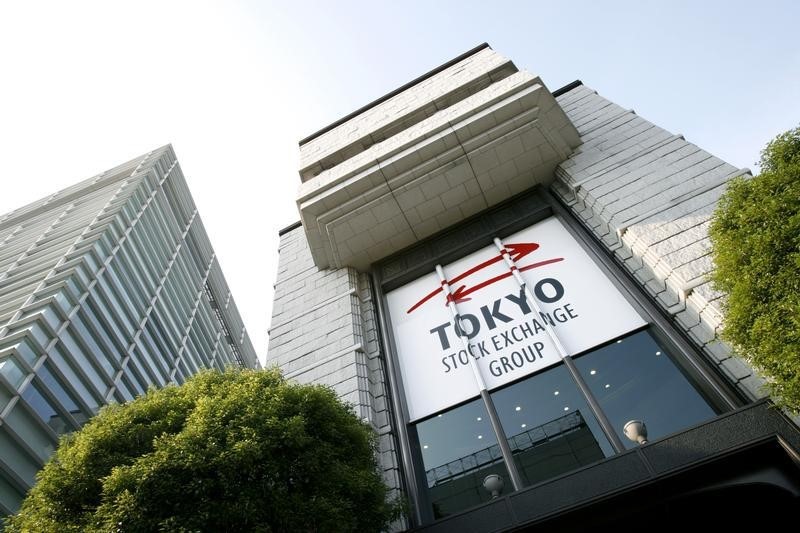This post was originally published on this site

Investing.com– Asian stock markets slumped on Wednesday as hawkish comments from Federal Reserve officials brewed more concerns over heightened interest rates, pushing investors out of risk-driven assets and into the dollar.
Technology-heavy indexes were the worst performers in the region. South Korea’s KOSPI slumped nearly 3% to a two-year low, while Hong Kong’s Hang Seng index dropped 2.4% to an 11-year low. Their losses mirrored a similar trend on Wall Street, as investors discounted future earnings from the sector against rising yields.
Japan’s Nikkei 225 index fell 2%, while Taiwan stocks lost 2.2%.
Sentiment towards risk-driven markets was battered by hawkish comments from Fed officials James Bullard and Neel Kashkari, who warned that the U.S. faced a serious recession risk, and that more interest rate hikes were likely in order.
San Francisco Fed President Mary Daly also said that the bank was struggling to maintain a balance between slowing inflation and avoiding a recession.
Their comments boosted the dollar to a new 20-year peak, while pushing U.S. Treasury yields close to the key 4% level. This, coupled with a slew of weak data prints from major economies, drove steep losses across most asset classes.
The hawkish comments come just a few days after the Fed hiked interest rates and warned that it was willing to risk economic pain in its battle against inflation. Rising interest rates have been the biggest weight on stock markets this year.
Asian stocks also took a weak lead-in from Wall Street on Wednesday, as U.S. stocks slumped for six consecutive sessions. Wall Street is now close to losing all of its gains made in the past two years, following a sharp reversal in accommodative monetary policy by the Fed.
China’s blue-chip Shanghai Shenzhen CSI 300 index fell 1.3% on Wednesday, with sentiment towards the country worsening as the offshore yuan hit a record low.
Chinese stocks are trading close to five-month lows, but have fared somewhat better than their Asian peers this year on stimulus measures by the government.
But a weakening yuan and a potential resurgence in COVID-19 cases are expected to weigh heavily on the economy this year.



